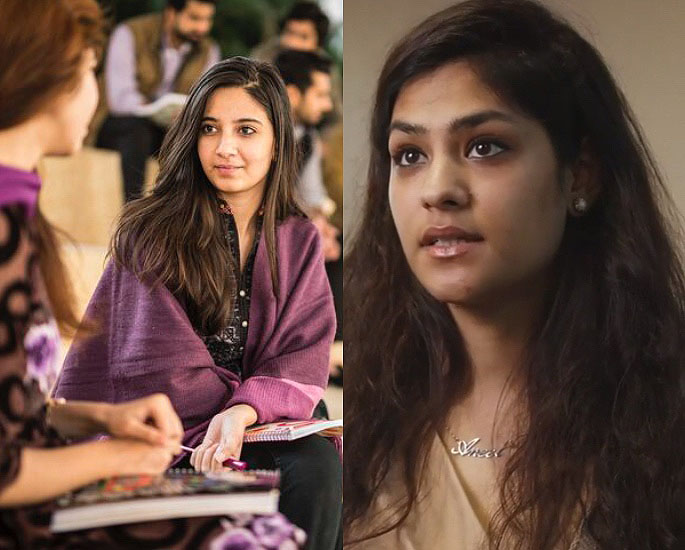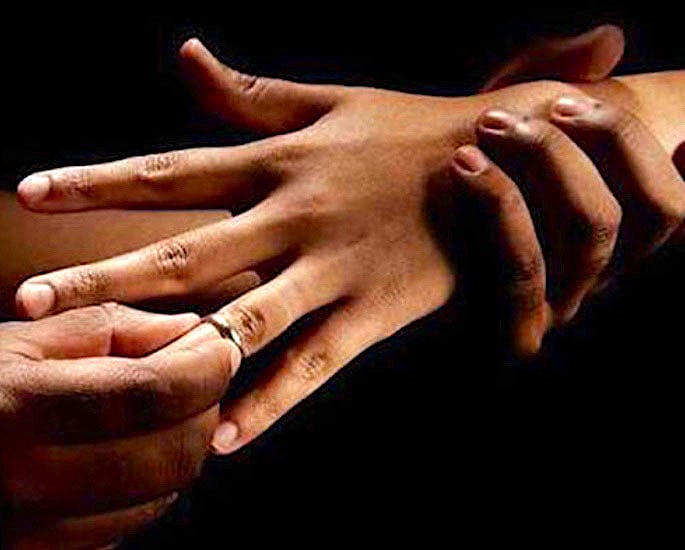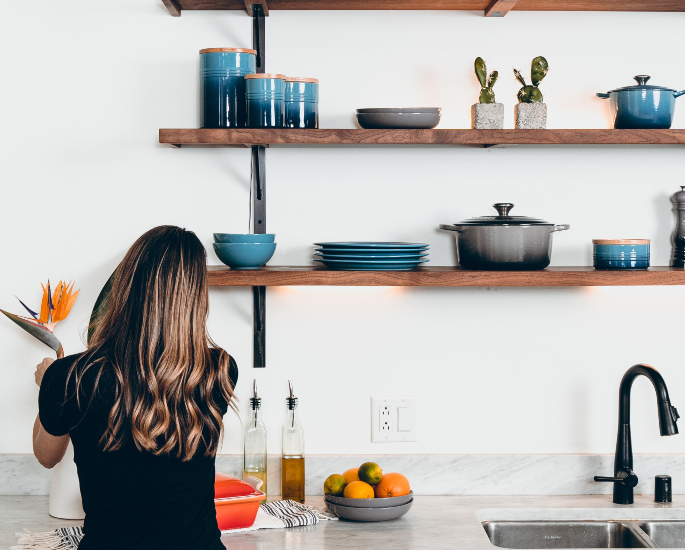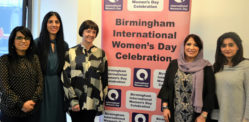"I was not asked if this was what I wanted"
Ingrained in much of Pakistani culture is patriarchy, where men tend to still lead the household, leaving British Pakistani girls in a vulnerable position.
This leads to a power struggle in the household, which can override women wishing to live the life they want.
Hence, this has an impact on the livelihood and future of British Pakistani girls.
Such power means that often life-changing decisions are made by men in the family on “behalf” of the women, or rather, women are forced to accept the decisions made.
This can affect various areas of their lives such as their rights, education, marriage, and other important areas of their lifestyle.
So, how are the lives of British Pakistani girls impacted by patriarchy? We explore some of the most affected lifestyle aspects.
University

Many will often say that years spent at university are some of the most exciting and fun times of one’s life. However, this may not be the case for many British Pakistani girls.
Whilst a lot of British Pakistani girls are allowed to study at university, they still may face restrictions.
Some may not be allowed to move out. Others may not have permission to stay out late. Sometimes, their courses may even be chosen for them.
These decisions are usually made by males in the family, for example, by the father of the household.
Ironically, mothers will also often agree with the father’s decision to avoid conflict and because of the patriarchal structure in the household.
Thus, the university education of British Pakistani girls can be very academic-led. This is without the chance to develop valuable social and personal experiences.
One key factor is the fear of daughters getting influenced and corrupted by western values and culture. This includes socialising, going out with the opposite sex, and developing sexual relationships.
Aliza Hussain, a 20-year-old student at UCL, says her university experience was not as exciting:
“My parents were adamant that I got an education, which I guess is a good thing.
“But that’s all I got; an education. I didn’t get a year of studying abroad and making memories. I didn’t get nights of wild partying and getting drunk. All I got was an education.
“I am grateful I got an education because a lot of my cousins got sent to Pakistan to get married, but I wish I got the chance to make fun memories at university.”
Patriarchy hinders the freedom that more British Pakistani girls have obtained by being able to study at university.
The major issue here is that of trust.
British Pakistani parents need to develop a stronger bond and trust with their daughters. Only then can British Pakistani girls excel and meet the expectations of their parents.
Clothing

Patriarchy for British Pakistani girls can sometimes extend even to their clothing choices. Many girls may have guidelines on what clothing is and isn’t appropriate or allowed.
Some parents may want to ‘protect’ their daughters from prying eyes.
However, there are blurred lines as to whether parents and more specifically fathers, want to protect or simply hide their daughters.
Is this dictation of what clothing choices girls should make?
Many British Pakistani girls may be told to dress in a more covering manner to prevent sexual assault.
This is because of the common misconception that women who are victims of sexual assault dress more revealingly and are “asking for it.”
There is another reason why British Pakistani girls are told how they should dress. And this being that in Pakistani culture, daughters tend to hold the family honour or ‘izzat’.
Ammar Rashid, a lecturer in gender, development, and public policy at Quaid-e-Azam University, Islamabad, writes about the honouring element for The Guardian:
“Honour is the currency of a patriarchal order, structured by society and state to sustain men’s preeminence while ensuring that hierarchical clan, caste and class identities are maintained at the expense of women’s autonomy and selfhood.”
Therefore, many parents want their daughters to look respectable, which reflects well on the family reputation.
Though Haseeba Begum, a 22-year-old retail assistant from Birmingham, expresses that her family have given her a bit of leeway:
“My parents are generally okay with me dressing how I like when I go out with my friends, and I wear jeans and T-shirts a lot.
“But when I go to see relatives or family friends, I have to wear Asian clothing.
“My mom said if I didn’t dress well, people would wonder what kind of daughter my parents have raised.”
For a variety of reasons, British Pakistani Girls can be told how to dress by their families.
Usually, they are instructed to be dressed more modestly.
This can be seen as a trivial manifestation of patriarchy but is still key in the formation of submissive girls, fuelling a generational cycle of patriarchy.
Marriage

Marriage, and particularly, the person a girl marries can be an aspect where patriarchy sneaks in.
This tends to be the case with forced marriages. Whilst forced marriages are illegal in both the UK and Pakistan, they still do occur in secret.
Forced marriages in the Pakistani community are at a 38% occurrence rate according to UK government statistics.
Often male family members are forcing and pressuring British Pakistani girls into a marriage that does not make them happy.
Sometimes they can force girls into marriage for reasons such as:
- Maintaining the family reputation, and ensuring they don’t marry someone that the family wouldn’t approve of.
- Dowry and financial gain.
- Responding to behaviour that is ‘dishonourable’ in the Pakistani community, such as having a boyfriend.
The power and authority that these male family members hold give them the power to dictate marriages.
However, love marriage is becoming an increasingly popular option for British Pakistani girls, as opposed to an arranged marriage.
This is a reflection of the weakening of patriarchy; with some British Pakistani girls being given the freedom to find a partner for themselves.
Arranged marriage is also common and provides freedom of choice to a degree. However, girls are not ‘scouting’ a partner themselves in this case.
In most cases, it tends to be the groom seeking the bride, meaning there is assumed consent on his behalf. Thus, the bride has the majority of the decision-making power.
When describing her arranged marriage to a family friend, Ayesha Ali, a 27-year-old housewife from Bradford, said:
“I couldn’t be happier! I grew up thinking the idea of an arranged marriage was weird, but I honestly feel very content with my choice, my marriage, and my husband.”
And so there are some examples where patriarchy does not stand the test of time when it comes to marriage.
However, the Pakistani community must end the secret practice of forced marriages.
Responsibility

In most cases, British Pakistani girls are given responsibility in the home with cooking and cleaning. These areas can be seen as having less importance.
This is far from the liberation that society wants modern women to achieve.
British Pakistani girls who do the cooking and cleaning in the home tend to be applauded.
Though, those who impose rules of cooking and cleaning rarely consider whether or not girls are interested in carrying out such tasks.
This plays to the cliche that men are providers, with the women being guiders, having to play a more active role at home.
When many British Pakistani girls reach their teenage years they begin learning to cook. However, men are rarely taught this skill.
Furthermore, many women find this work long and tiring, but it remains unpaid as it is seen as a ‘duty’.
This expectation of women to be at the service of the men in their families is sometimes the root cause of patriarchy.
Until this root is pulled out, it will be very tough for the British Pakistani community to tackle the problems of patriarchy.
Decision Making
British Pakistani girls have freedom in decision-making but are restricted to decisions that can be seen as less important. Such examples include the evening meal or what colours the walls will be.
It tends to be the men in the family who decide where the family will live or work. This is often without consulting the opinion of the women in the home.
These are huge decisions to be made, and can hugely impact the lives of those involved.
Despite how difficult the impact of such decisions can be, many have no choice but to go along with them.
This reinforces the patriarchy that British Pakistani girls are under and the power that male family members hold.
Saima Khan, a 35-year-old teacher from Birmingham shares a prime example:
“When I got married, my father-in-law and husband decided after 2 months that we would be moving to Birmingham to support their family business.
“I was not asked if this was what I wanted, and even if I did object, it’s not like it would actually change things.
“I miss Nottingham, my friends, my old job. If I want to go back, I would have to leave my husband, which simply is not an option.”
Decisions of such high value should be made on an equal basis, and with compromise. However, it seems patriarchy leaves no room for compromise.
Employment

Many British Pakistani girls may be limited to certain jobs and fields or have their jobs chosen for them.
These restrictions are usually imposed by the males in their family such as their father or brother or even their husband if they are married.
Furthermore, there are many British Pakistani girls who are stay-at-home wives/daughters.
Issues arise regarding whether this is a choice. Some may be forced to stay at home as they are not allowed to work.
This could be because of the social construct that as women it is their responsibility to attend to the household chores. And being at work makes this difficult.
Is this a manifestation of a man’s need to be masculine and the ‘breadwinner’?
Employed women in the family can be a signal to some that the men in the family are struggling to provide.
This can also be the case when the father or husband is unemployed, whilst the mother or wife is employed.
When describing her husband’s need to provide, Farida Asghar, a 37-year-old caring assistant from Sheffield said:
“He hates it when I spend my money on things for the house.”
“It doesn’t make sense. Marriage is supposed to be a partnership, where responsibilities are split, but his pride makes him want to do everything.”
Parental fears of children being influenced by the wrong crowd can cause restrictions in employment choices.
Fathers may also want to prevent their daughters from coming into contact with men.
UK Government statistics found that in 2019, 39% of employed 16-64 year-olds were Pakistani women, compared to 73% of Pakistani men.
Whilst this is a positive sign showing that Pakistani women are employed, the figures are still low in comparison to men.
It is possible that many British Pakistani girls are not interested in employment, hence the low figure. However, the patriarchy many girls are under is a key explanation for this too.
Freedom to Go Out

It is important to note that a lot of the restrictions imposed on women are not unique to British Pakistani culture alone, but rather society as a whole.
It is not uncommon for women to be told to stay at home late at night or to be accompanied when they are out alone.
This is more to do with the dangers of being out alone that sadly exist for women in society.
However, in British Pakistani culture, this practice of restricted freedom may not be entirely connected to a woman’s safety.
Women being out or out alone at night may be seen as dishonourable, and may be frowned upon.
This can ruin a family’s reputation, and raise many questions:
“How has she been raised? or “Does her father not know how to control her?”
The word ‘control’ reflects the strong presence of patriarchy in Pakistani culture.
This is because of the idea that there is an implied duty of British Pakistani girls to meet the obligations imposed by the men in their family such as their fathers.
Furthermore, girls may also be restricted from going out due to parental fears of the influences that lie outside, particularly boys.
Aleena Saleem, a 19-year-old law student from Birmingham says there are certain boundaries:
“My parents do let me go out with my friends to restaurants, but I don’t think I would ever be allowed to go to somewhere like a shisha lounge.
“I think firstly this is because of the fact that shisha lounges are seen as very boyish places, that are far from being feminine, and the community looks down on girls who go there.
“I also think that because of the heavy male presence, and the fact that shisha lounges are generally viewed as a spot for boys, it just simply would not be a place I can go.
“I’m not sure what my parents are trying to protect me from, I mean eventually I am going to have to speak to boys.”
There have been great improvements in the lives of British Pakistani girls with the slow weakening of patriarchy in their lives.
However, there are still huge restrictions placed on British Pakistani girls that are a manifestation of the patriarchy they are under.
The impact of patriarchy in British Pakistani households makes it hard for girls to live a life of contentment and one that prioritises their needs and wellbeings.
We must continue to empower British Pakistani girls. This can be done by breaking the moulds in many Desi families, that stop girls from achieving their dreams.






























































